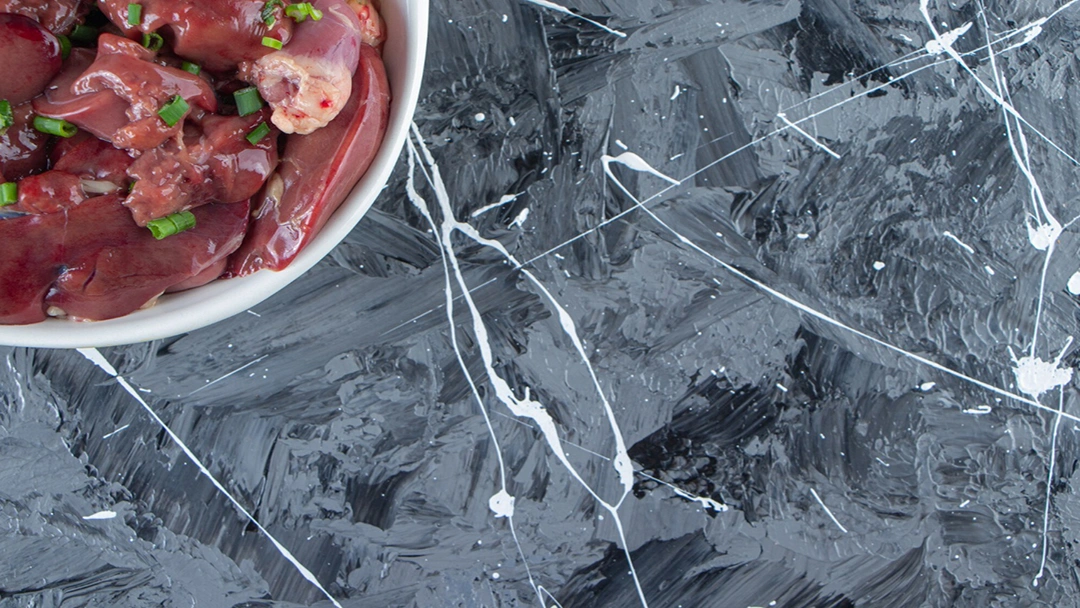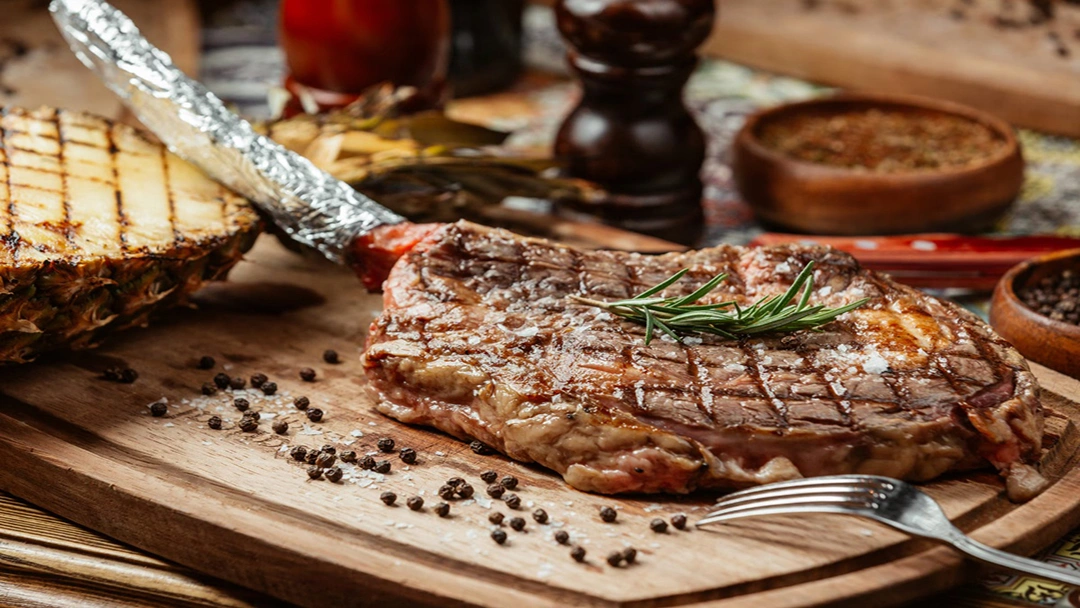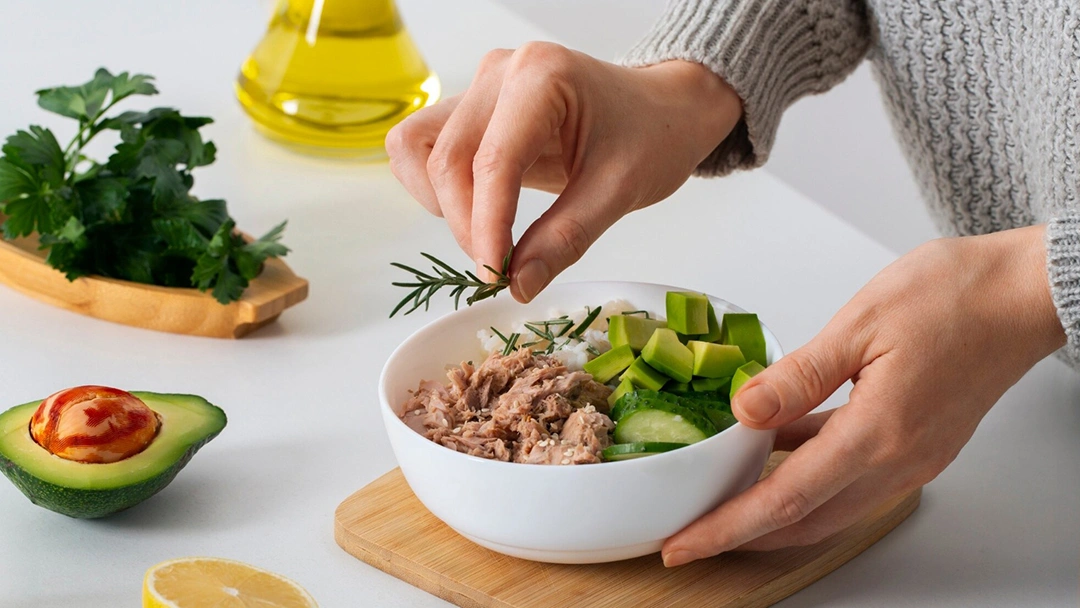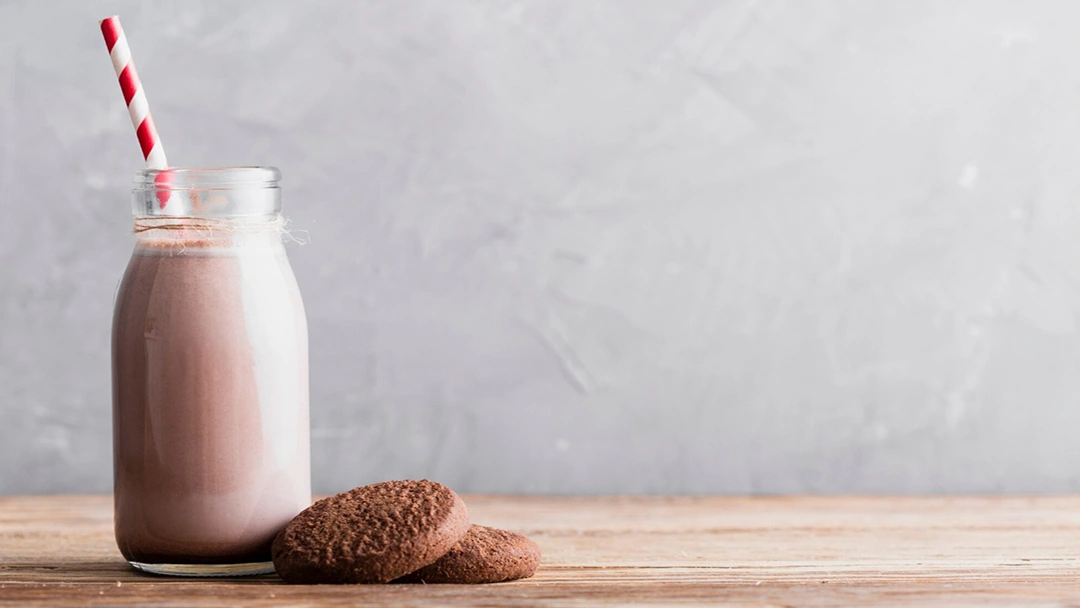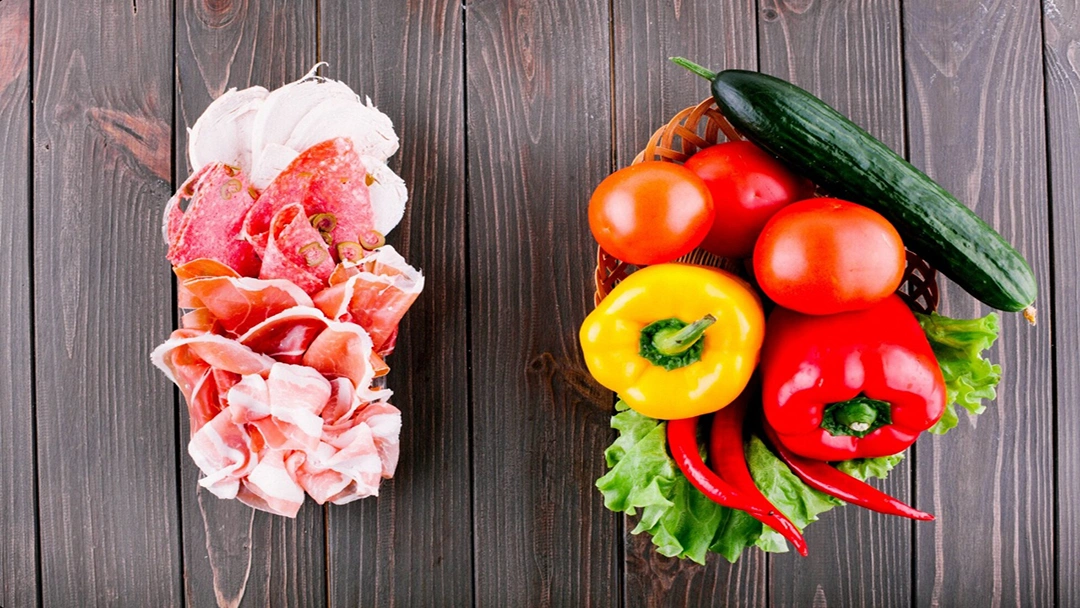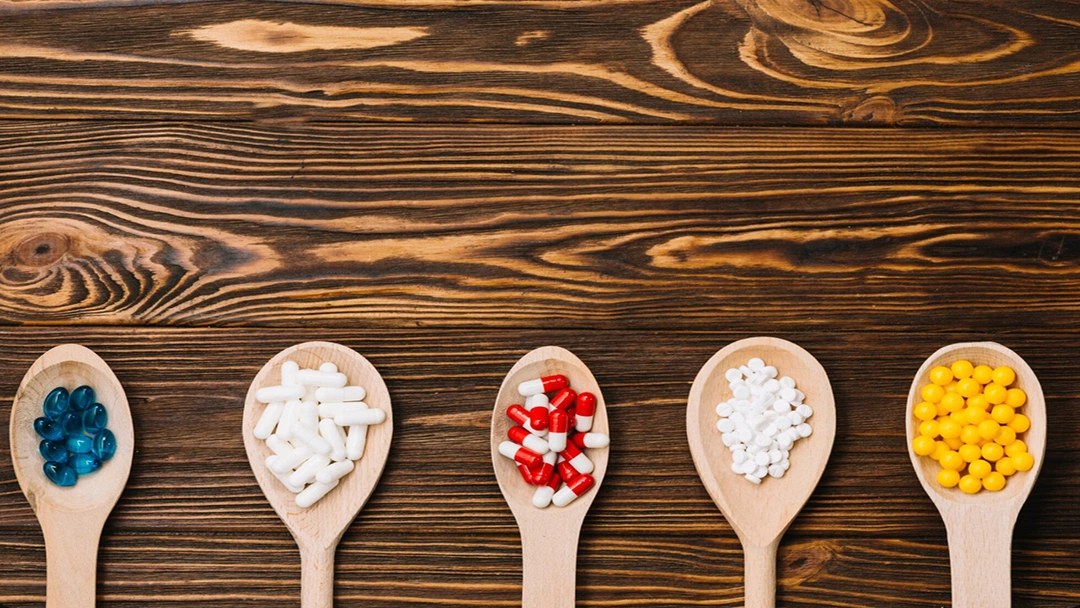Nutritional Value of Protein
Different protein sources contain varying nutritional values. The following table lists the nutrients found in 100 grams of some of the main animal-based protein sources to help you decide which ones you can consume to reach your health and fitness goals [1] [2] [3] [4] [5].
| Foods | Protein | Calories | Healthy Fats | Unhealthy Fats | Cholesterol | Zinc | Phosphorus | Potassium |
|---|
| Beef |
18.4 g |
232 kcal |
7.576 g |
7.009 g |
67 mg |
5.39 mg |
151 mg |
281 mg |
| Pork |
21.1 g |
186 kcal |
5.33 g |
3.309 g |
56 mg |
1.67 mg |
197 mg |
361 mg |
| Chicken |
18.6 g |
144 kcal |
3.66 g |
1.684 g |
92 mg |
1.35 mg |
178 mg |
272 mg |
| Turkey |
17.3 g |
153 kcal |
5.46 g |
2.341 g |
82 mg |
2.95 mg |
162 mg |
246 mg |
| Salmon |
20.3 g |
197 kcal |
10.8 g |
3.1 g |
62 mg |
0.34 mg |
230 mg |
378 mg |
| Mackerel |
18.5 g |
305 kcal |
14.53 g |
7.15 g |
95 mg |
1.1 mg |
254 mg |
520 mg |
| Bison |
18.7 g |
223 kcal |
6.969 g |
6.8 g |
70 mg |
4.29 mg |
181 mg |
307 mg |
| Eggs |
12.4 g |
143 kcal |
5.45 g |
3.2 g |
411 mg |
1.24 mg |
184 mg |
132 mg |
| Swiss Cheese |
27 g |
393 kcal |
8.4 g |
19.19 g |
93 mg |
4.37 mg |
574 mg |
71 mg |
Consuming these protein sources can have various health benefits, especially on a Carnivore Diet, which focuses on fat and protein-rich foods.
Learn More: Can You Eat Eggs on a Carnivore Diet? How Many Eggs Can You Eat?
The Benefits of Eating Protein on the Carnivore Diet
Consuming adequate protein can be beneficial to the human body in various ways, including the following.
- Boosting Metabolism and Fat Burning
- Managing Weight
- Increasing and Maintaining Muscle Mass
- Decreasing Blood Pressure
- Improving Bone Health
- Suppressing Appetite and Cravings
- Helping Recovery after Injury
Learn More: The Carnivore Diet and Gout: The Best and Worst Meats to Eat
"Adequate protein intake is vital for maintaining muscle mass, especially as we age. The Carnivore Diet, with its emphasis on meat, ensures that you get more than enough high-quality protein to support muscle health and overall metabolic function."
Boosting Metabolism and Fat Burning
Protein has a higher thermic effect (20-35%) than fat and carbohydrates (5-15%), i.e., it can increase the metabolic rate more than fat and protein [6].
[cta-meal-plan]
For example, if the thermic effect of protein is 30%, 100 calories of protein only end up as 70 usable calories, i.e., 30% of protein calories are burned when your body is digesting and metabolizing the protein.
So, consuming protein-rich foods can boost metabolism and increase calorie burn, i.e., about 80-100 more calories can be burned daily [7] [8].
Managing Weight
Increased metabolism as a result of consuming enough protein can lower calorie intake, increasing weight loss speed. This means that increasing the protein intake can help weight loss even without limiting portions or restricting the diet [9] [10].
Adequate protein intake can also help maintain weight, which is highly important for weight management. A 2004 study indicated that consuming 20% more protein after weight loss decreased weight regain by 50% [11].
Increasing and Maintaining Muscle Mass
The human body needs protein to build and maintain muscles, so consuming adequate protein is necessary, especially for athletes and those who want to grow and maintain muscle mass.
A 2012 study supported the idea that consuming protein can help enhance muscle and strength gains from resistance training [12].
A 2015 study on the effects of protein on muscle mass, strength, and aerobic and anaerobic power showed that protein supplementation can increase muscle mass and performance when there is adequate exercise and dietary intake [13].
Learn More: Can You Eat Avocado on a Carnivore Diet? What About Avocado Oil?
On the Carnivore Diet, individuals typically consume between 1.5 to 2.5 grams of protein per kilogram of body weight daily, which supports muscle maintenance and growth, especially for physically active individuals (Baker, S., 2019).
[cta-gocarnivore-plans]
Decreasing Blood Pressure
A 2010 study showed that enhancing protein intake resulted in lower systolic blood pressure by 1.76 mm Hg on average and diastolic blood pressure by 1.15 mm Hg [14].
These findings can lead to preventing various heart-related issues, as high blood pressure can cause heart attacks, strokes, and even chronic kidney diseases.
Improving Bone Health
Various studies confirm that consuming animal protein sources can significantly affect bone health by providing calcium and vitamin D necessary for bone health and osteoporosis prevention [15] [16].
A 2009 study analyzing the effects of protein intake on bone health demonstrated that consuming more protein can decrease bone loss, and reducing protein intake can be detrimental to the integrity and function of bones [17].
Suppressing Appetite and Cravings
Protein is the most satiating macronutrient because it can affect ghrelin, the hunger hormone, and make you feel full sooner [18] [19].
Also, protein can help lower cravings. A 2011 study indicated that sourcing 25% of daily calories from protein lowered cravings by 60%, i.e., the participants showed significantly lower need to snacking [20].
Suppressing appetite and cravings is an important factor in weight loss, as it helps reduce overall caloric intake.
Learn More: Long-Term and Short-Term Side Effects of The Carnivore Diet
A study published in the American Journal of Clinical Nutrition found that higher protein diets can lead to improved body composition, increased satiety, and better weight management (Leidy et al., 2015).
[cta-meetings]
Helping Recovery after Injury
Protein can help the body recover faster after injuries as protein is the main building block of tissues and organs. A 2006 study showed that consuming protein-rich foods can help nitrogen balance, which leads to faster recovery after injuries [21].
A 2001 study indicated that wound healing depends on the quality of nutrition and the inclusion of necessary polyunsaturated fatty acids in the diet. Protein deficiency can lower healing rates by reducing collagen formation and increasing wound dehiscence [22].
Some may think now that protein has all these benefits they can consume it as much as they can. But it’s NOT a good idea because overconsuming protein can cause some health problems in some individuals.
Learn More: High-Protein, Low-Carb Breakfast Without Eggs: 15 Recipes
What Happens If You Eat Too Much Protein?
Consuming too much protein can lead to the following health issues.
- Bone Problems in Sensitive Individuals
- Kidney Problems in People with Underlying Kidney Diseases
- Heart Disease
- Cancer Risk
Learn More: The Carnivore Diet and Fruits: Can I Eat Fruits on Carnivore?
A study in Nutrients (2019) indicated that diets high in animal protein are associated with better muscle mass retention and lower risk of sarcopenia (loss of muscle mass) in older adults (Deutz et al., 2014).
Bone Problems in Sensitive Individuals
Some studies suggest that increasing protein consumption can increase acid production and renal acid excretion, as protons are released during the oxidation of sulfur-containing amino acids, such as methionine, cysteine, and cystine.
[cta-meal-plan]
Since urinary calcium excretion depends on acid excretion, urinary calcium is correlated with protein intake [23].
This means that overconsuming protein can induce a negative calcium balance and lead to bone loss [24].
Kidney Problems in People with Underlying Kidney Diseases
A 2019 study suggested that although eating high amounts of protein is safe for individuals with normal kidney function, people who have underlying kidney issues should avoid too much protein, as high levels of protein can negatively affect kidney function [25].
Another 2018 study indicated that individuals with kidney disease should go on protein-restricted diets, as such diets can lower the rate of kidney function decline [26].
Learn More: Can I Have Mayonnaise on Carnivore? How to Make It?
Despite concerns about high protein intake affecting kidney function, studies have shown that healthy individuals with normal kidney function do not experience adverse effects from higher protein consumption (Poortmans & Dellalieux, 2000).
Heart Disease
A 2020 study suggested overconsuming animal protein can increase the risk of death from cardiovascular diseases [27].
Another 2020 study indicated that consuming protein in excess can increase the risk of atherosclerosis, or plaque buildup in the arteries [28].
Cancer Risk
Although various studies show total protein consumption does not contribute to cancer, some studies indicate that protein from processed meats can increase the risk of colorectal, breast, and gastric cancer [29] [30].
For example, a 2019 study demonstrated that while consuming white meat can lower the risk of gastric cancer, eating processed meat can enhance the risk of gastric cancer [31].
In addition to these general problems of overconsuming protein, eating too much protein can disrupt the results of the Carnivore Diet and cause some side effects in some individuals.
Learn More: Can You Eat Eggs on the Carnivore Diet? 5 Ways to Eat Eggs
[cta-gocarnivore-plans]
Potential Side Effects of Eating Too Much Protein on Carnivore
Excessive consumption of protein while on a Carnivore Diet can disrupt the macronutrient balance and prevent from achieving desired results.
- Protein Dominance: Excessive protein consumption can lead to a disproportionate intake of protein compared to fats and carbohydrates. While protein is essential for various bodily functions, including muscle repair and synthesis, consuming too much protein relative to other macronutrients can disrupt metabolic processes [32].
- Insufficient Fat Intake: Fat and protein are the two main macronutrients consumed on a Carnivore Diet. However, if protein intake is excessively high, it may displace dietary fats, leading to insufficient fat intake. Fat is essential for energy, hormone production, and the absorption of fat-soluble vitamins [33].
- Ketosis Disruption: The Carnivore Diet induces a state of ketosis, wherein the body produces ketone bodies from fat breakdown for energy in the absence of dietary carbohydrates. Excessive protein intake can disrupt ketosis, as some amino acids from excess protein can be converted into glucose through gluconeogenesis, thereby increasing blood glucose levels and reducing reliance on ketones for fuel [34].
- Glucose Instability: Consuming too much protein may result in the production of excess glucose through gluconeogenesis, leading to fluctuations in blood glucose levels, negatively affecting energy levels, mood, and overall metabolic health, especially in individuals with insulin resistance or diabetes [35] [36].
So, the main question is how much protein we need to consume to gain the benefits of protein and avoid its potential side effects.
Learn More: What Is The Best Knife for Cutting Meat? 10 Best Meat Carving Knives
How Much Protein Is Safe on the Carnivore Diet?
Determining how much protein is safe on the carnivore diet can depend on various factors such as individual metabolism, activity level, age, and overall health status.
The Recommended Dietary Allowance (RDA) for protein is 0.36 grams per pound (0.8 grams per kg) of body weight [37].
Some experts believe that active individuals need more protein than the RDA, about 0.54–0.9 grams per pound (1.2–2 grams per kg) of body weight daily [38].
Other groups of individuals like athletes or pregnant women need to consult their healthcare provider to find an adequate amount of daily protein intake.
However, you can use this Carnivore Diet Macro Calculator to find out the proper amounts of protein you need to go through the day with a healthy diet.
[cta-meetings]
You can also consider the following general guidelines:
- Regulate satiety and appetite: Protein is known for its satiating effect, meaning it can help keep you feeling full. Many Carnivores regulate their protein intake based on hunger cues. They eat until they are satisfied rather than following strict macronutrient targets.
- Focus on muscle maintenance and growth: Adequate protein intake is essential for maintaining and building muscle mass, especially for individuals who are physically active or do strength training. The amount of protein needed to support muscle maintenance and growth can vary based on factors such as body composition and exercise intensity.
- Consider protein absorption and utilization: Animal-based proteins are highly bioavailable, i.e., they are more efficiently absorbed and utilized by the body than plant-based proteins. So, Carnivores generally need lower amounts of protein than those not on a low-carb, meat-based diet.
After finding the right amount of daily protein, some Carnivores wonder which source is a better protein source, white meat or red meat. Well, the answer depends on different factors.
Learn More: The Best Meat to Smoke: 15 Best Cuts to Throw into the Smoker
Is It Better to Have Red Meat or White Meat on Carnivore?
Deciding if red meat or white meat is better for those on the Carnivore Diet depends on your current health status, individual preferences, nutritional needs, and health goals.
Anyhow, you can consider the following factors when choosing between red meat and white meat as a protein source on the Carnivore Diet.
- Nutrient Content: Red meat, such as beef, lamb, and pork, is higher in nutrients like iron, zinc, and B vitamins than white meat. These nutrients are important for various bodily functions, including energy metabolism, immune function, and red blood cell production. Organ meats, such as liver and kidney, are nutrient-dense foods in the red meat category. However, white meat, such as chicken and turkey, is still a good source of protein and contains essential nutrients like niacin, phosphorus, and selenium.
- Fat Content: Red meat contains more fat than white meat. Some individuals find that they feel more satisfied and experience better satiety when consuming fattier cuts of meat. However, others may prefer leaner options like chicken breast or turkey breast.
- Personal Preference: Taste preferences and individual tolerances can play a significant role in deciding between red meat and white meat. Some people may prefer the flavor and texture of red meat, while others may find white meat to be more enjoyable.
Learn More: White Meat vs. Dark Meat: Which One Is Better for You?
[cta-meal-plan]
Conclusion
So, to find a reliable answer to the question about how much protein on the Carnivore Diet to consume, you can use this Carnivore Diet Protein Calculator and consult with your healthcare provider.











